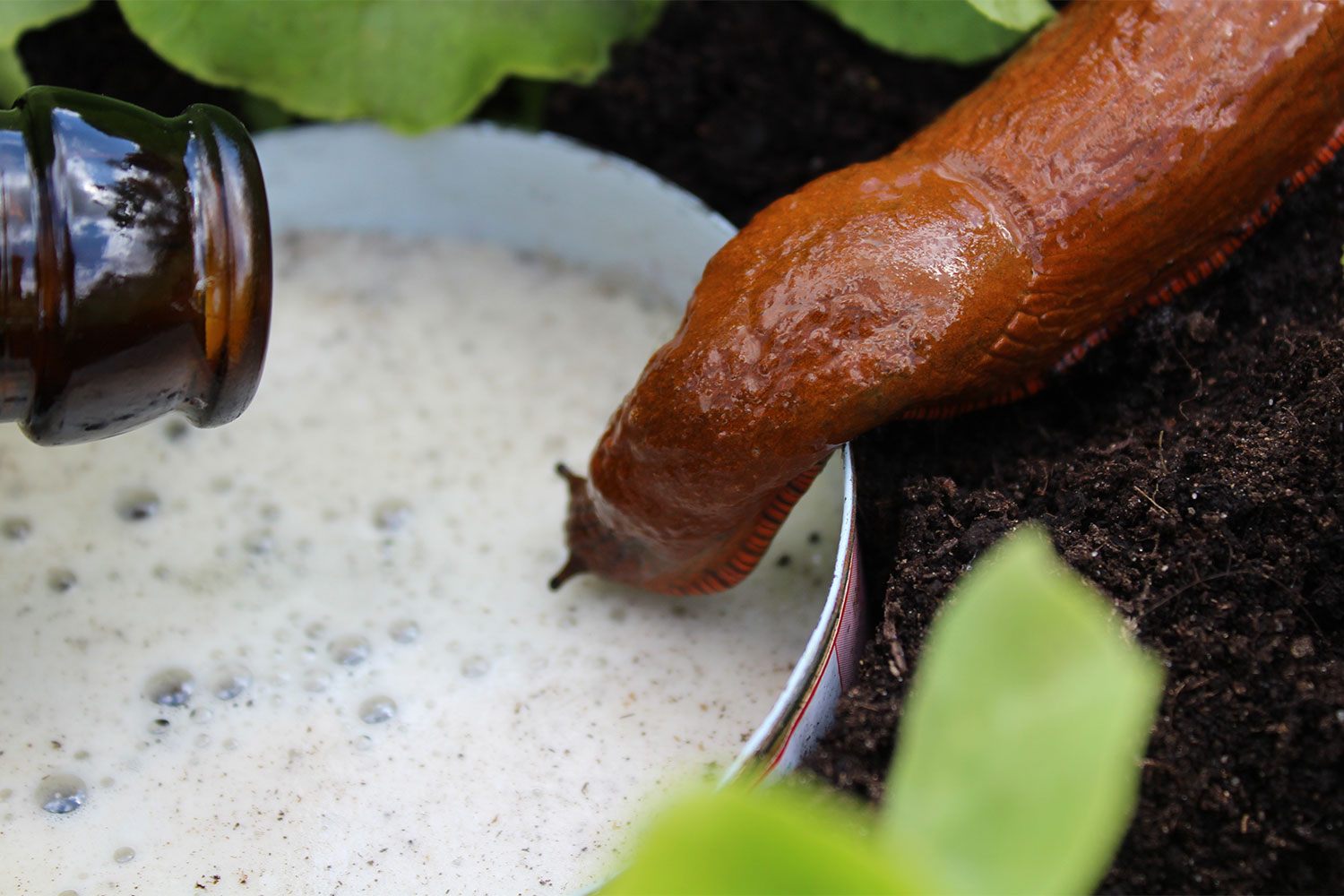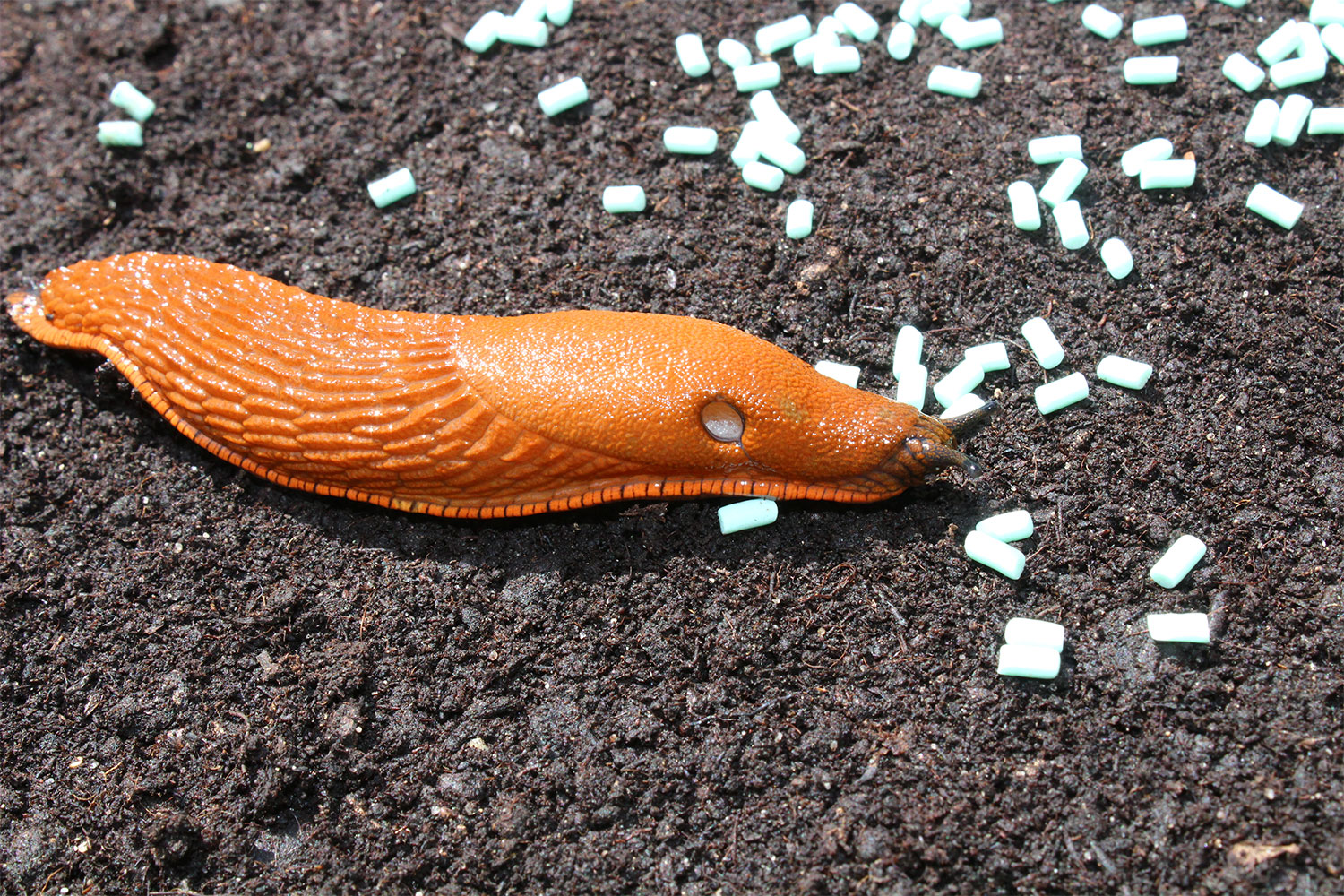It’s understandable why slugs and snails are considered pests as they chow down on your favorite plants and homegrown veggies. Typically, when you see just a few slugs and snails, there are many more that you don’t see. So, if your yard, patio, or deck is irresistibly appealing to these little critters, it may be time to check out organic pest controls. These methods will help you get rid of your uninvited guests without causing harm to your family, pets, or plants.
Spread around some coffee grounds
Your morning cup of coffee may be the answer to all of your slug and snail problems. Since coffee is teeming with caffeine, a natural enemy of slugs and snails, it is the perfect way to get rid of the issue firsthand.
To implement this method, you simply have to spread coffee grounds around your garden or specific plants. Since caffeine is a natural killer for slugs and snails, it is the perfect, organic way to keep them away from your garden.
Create a slug trap with beer
Slugs are apparent alcoholics with an absolute love for beer! However, in all seriousness, this method works effortlessly. Since slugs are attracted to the scent and taste of beer, you can create the perfect trap that will lure them away from your plants.

To create this trap, you can use any old container, submerge it into the ground so the lip is just at ground level, and then fill it with a little bit of beer. You can create a whole line of these slug traps in front of your plants. The slugs won’t be able to resist the beer and you will enjoy a slug-free garden.
Buy some organic pellets
As the trend for organic pest control skyrockets, more and more store-bought options are becoming available. One of these options is organic pellets. Often made with iron phosphate, these pellets are a lot safer than metaldehyde.
To use, simply spread a small amount around your garden and plants and let the pellets do the rest. When ingested, these pellets will kill slugs and snails. They are made with organic ingredients that offer a more safe option for your plants and other animals.
Use nematodes
A natural enemy of slugs and snails, nematodes can be the perfect organic option for getting rid of your pest issue. Nematodes are microscopic worms that you can actually buy for pest control purposes. When released, nematodes will attack the slugs and snails, ultimately killing them.

Repel pests with unattractive plants
One of the best ways to organically repel slugs and snails without harming them is by growing the plants they hate. Slugs and snails have some plant enemies that will send them slithering for the hills. From unattractive scents to tough textures, these plants are the perfect all-natural option:
- Ferns. With bright green leaves that are thick and hard to chew, the fern plant is a great way to keep slugs and snails far from your garden. You can line the front of your garden with this pretty greenery to keep the pests away for good.
- Lavender. The strong scent of the lavender plant is the perfect slug and snail repellent. Since slugs and snails despise strong fragrances, it is understandable why the lavender plant works so well. You can line your garden with these pretty purple plants to create a fragrant border.
- Hydrangeas. Available in a variety of beautiful colors, hydrangeas will not only get rid of your pest problem, they will also add some stunning vibrancy to your garden.
Euphorbias. Euphorbias, or spurges, are a flowering plant that releases a bitter-tasting sap on its stems. The bitter sap is the perfect deterrent for snails and slugs. All it takes is one taste to have them gone for good. - Geraniums. Available in pinks, whites, and reds, the blooms on a geranium plant are a sight to see. Although beautiful to us, they are a sore sight for snails and slugs. Featuring hairy stems and leaves, the geranium plant creates an awfully uncomfortable surface for snails and slugs to slither across.
- Rosemary. Similar to lavender, rosemary deters slugs and snails with its strong scent. With this plant, you will not only get pest control but also a delicious herb for your cooking.
Don’t let pests ruin your harvest
Snails and slugs can wreak havoc on your garden if you let them. They love to make a meal out of nearly any plant they can get their slime on. Because of this, finding an organic and all-natural way to keep them away from your garden is of utmost importance for a healthy harvest. So, the next time snails and slugs decide to overrun your outdoor space, keep them away with these organic options.


